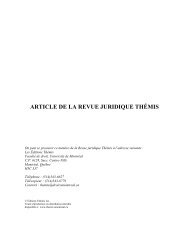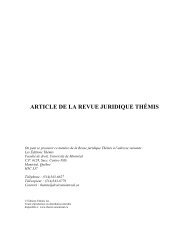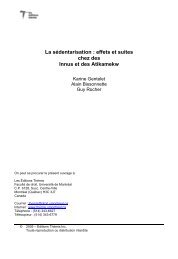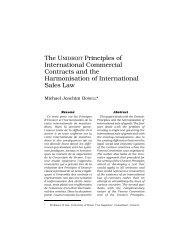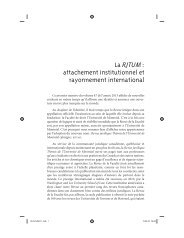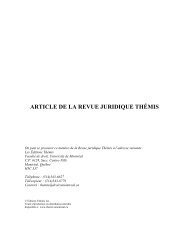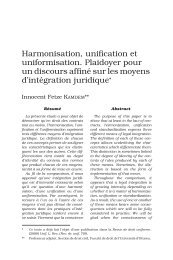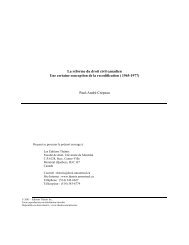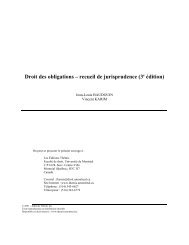The UNIDROIT Principles of International Commercial Contracts and ...
The UNIDROIT Principles of International Commercial Contracts and ...
The UNIDROIT Principles of International Commercial Contracts and ...
You also want an ePaper? Increase the reach of your titles
YUMPU automatically turns print PDFs into web optimized ePapers that Google loves.
THE <strong>UNIDROIT</strong> PRINCIPLES AND MERCOSUR COUNTRIES 393<br />
I n fluenced by the 1985 UNCITRAL Model Law on Intern a t i o n a l<br />
C o m m e rcial Arbitration, a new arbitration law has been re c e n t l y<br />
approved by the National Congress. Its Article 32 expressly allows<br />
the parties bound by an arbitration agreement to choose the law<br />
applicable to the merits <strong>of</strong> the dispute, in line with other modern<br />
arbitration laws 3 1 . However, if literally interpreted, the Article 32<br />
provision limits the choice <strong>of</strong> law to a State law rule, excluding thus<br />
the applicability <strong>of</strong> the <strong>Principles</strong>.<br />
T h e re f o re, in Paraguay, it is uncertain whether the <strong>Principles</strong><br />
are applicable to disputes submitted to arbitration.<br />
2. Brazil<br />
a. <strong>International</strong> Law<br />
Brazil is a party to the Bustamante Code (Havana, 1928) 3 2 ,<br />
which deals in its Articles 164 to 186 with international obligations<br />
<strong>and</strong> contracts. Resulting from the compromise <strong>of</strong> several schools <strong>of</strong><br />
legal thought prevailing at the time <strong>of</strong> its conclusion, the<br />
Bustamante Code failed to adopt precise connecting factors,<br />
sometimes using territorial law, sometimes personal law, sometimes<br />
the lex celebrationis, <strong>and</strong> sometimes the lex executionis. N o w h e re<br />
in the Code there is mention to the party autonomy principle, which<br />
explains the absence <strong>of</strong> doctrinal consensus on its admission in<br />
contracts signed between parties domiciled in the Code’s signatory<br />
States 33 .<br />
b. Domestic Law<br />
i. Introductory Law to the Civil Code, 1942<br />
C o n c e rning conflict <strong>of</strong> laws rules, Brazilian domestic law is<br />
a n a c h ronistic, since it still adopts rigid criteria for the<br />
determination <strong>of</strong> the law applicable to international contracts <strong>and</strong><br />
rejects the party autonomy principle. According to Article 9 <strong>of</strong> the<br />
31 Luis A. BREUER, “Paraguay como Centro de Arbitraje Internacional. Objetivo<br />
de una Nueva Ley de Arbitraje”, (2001) Rev. Jurídica La Ley Paraguaya 5 1 5 - 5 2 1 .<br />
32 <strong>The</strong> Private <strong>International</strong> Law Convention <strong>of</strong> the American States (Bustamante<br />
Code) was enacted in Brazil in 1929 through Decree nr. 18,871. On the subject,<br />
see: J. SAMTLEBEN, op. cit., note 8.<br />
33 N. de ARAUJO, op. cit., note 13, p. 160-164.



